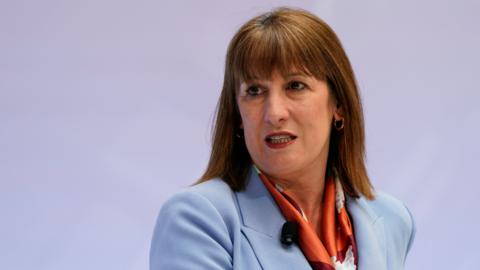The government has already said that the increase in the total spending on day-to-day running costs and on investment is going to be relatively modest for the years covered by the Spending Review.
That could mean that "sharp trade-offs are unavoidable", according to the Institute for Fiscal Studies (IFS) think tank.
For example, the government has said that the overseas aid budget will be cut to fund a sharp increase in defence spending.
Spending on defence will rise from 2.3% of gross domestic product (GDP) to 2.5% by 2027. That's around an extra £5bn a year. Ministers want to increase defence spending further to 3% by 2034.
Reeves is set to unveil a £15.6bn package to fund extensions to trams, trains and buses in Greater Manchester, the Midland as well as Tyne-and-Wear, after criticism that too much infrastructure spending targeted London and the south-east.
As yet, there are no details about how much money will be allocated to the Department of Health and Social Care (DHSC), which oversees the NHS.
But due to its size - nearly 40% of total departmental expenditure this year will go to DHSC - its budget can have a considerable impact on those of other departments.
Reeves has confirmed that the government will revise its controversial decision to limit Winter Fuel Payments to those in receipt of means-tested benefits.
But while the government will share some information about who will receive the payment as part of the Spending Review, full details will not be released until the Budget later in the year.
The government also wants to increase investment.
Reeves has tinkered with the way that debt is measured to free up more than £100bn to fund building, research and development as well as other major projects.
There have been reports that she could announce a new nuclear power station in Suffolk.
Sizewell C, a project that is jointly owned by the UK government and the French state-owned energy giant EDF, wants to begin construction of a power station that will be funded by taxpayers and private investors.
The government may also set out detailed plans to build small modular reactors (SMRs) - mini nuclear power stations - in England and Wales.
